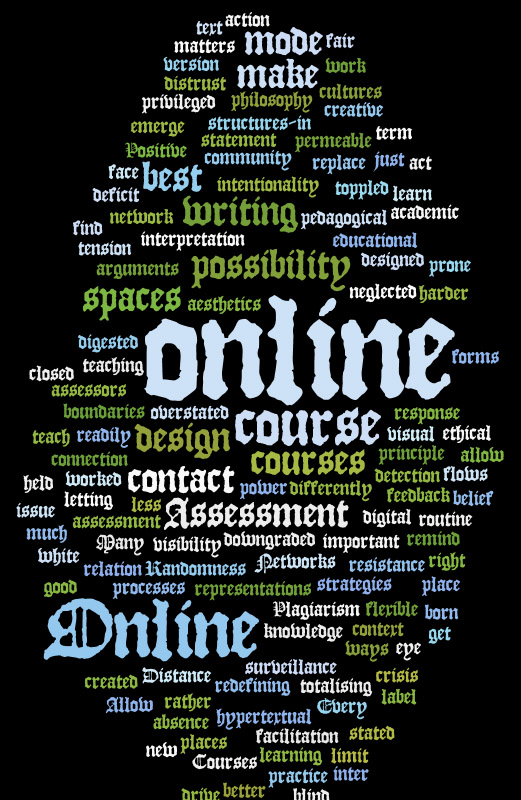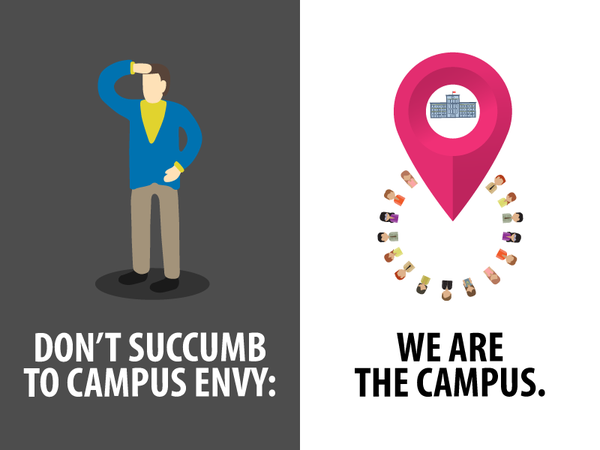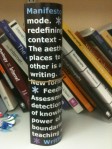This is a (partial) list of remixes, reinterpretations, elaborations, blog posts, feedback and articles discussing the manifesto. Let us know if you see, make or write more. You can comment here, or send an email to jen.ross@ed.ac.uk.
The Edinburgh manifesto authors don’t take responsibility for the content of these, but do wholeheartedly approve of their existence.
Cultura libre desde la educación 2019 (Spanish language MOOC on free culture in education) – one of the reflexive activities in the MOOC uses the manifesto as a starting point.
Mañero, J. (2019). Translation of Manifesto for Teaching Online into Spanish.
Telećan, D. (2019). Translation of Manifesto for Teaching Online into Croatian.
John Robertson (@kavubob)’s annotatable Manifesto for Teaching Online. Open for comments!
Jenny Mackness’ blog post: Edinburgh University’s updated Manifesto for Teaching Online – 2015
Remixing the nature of authorship: (from manifesto co-author James Lamb – and his thoughts on this statement)
Don’t succumb to campus envy. We are the campus. Ed Guzman, shared on Twitter 23 October 2015. See the rest of Ed’s visualisations of the 2016 manifesto.
Partial translation of the manifesto into Chinese, by Yoyu
From the 2011 Manifesto:
Meme-ifying Online Advocacy. Steve Kolowich, Inside Higher Ed. “The idea is not to build political leverage in the interest of pushing a pro-online policy agenda, says Ross. It is not a petition, she says. It is more like a conversation-starter that aspires to be pithier than a paper and more viral than a wiki.”
Manifesto for teaching online – {[//..-~>LOSSLESS REMIX<~-..\\]} – by White Label. A fascinating remix that uses every word and piece of punctuation in the original manifesto, but in a different order!
there have been a few posts at the Educational Technology and Change (ETC) site – with some very interesting comments, also.
1. A ‘Manifesto for Teaching Online’: The Edinburgh Edict. Jim Shimabukuro “arguably the most exciting document for discussion to emerge thus far in 2012.”
2. Edinburgh Manifesto: A Declaration of Endependence. Jim Shimbakuro. A detailed analysis and elaboration of a number of the manifesto statements. “The University of Edinburgh MSc in E-learning program’s “Manifesto for Teaching Online” is a bold move to break the chains that bind completely online to traditional and blended instructional models.”
3. Edinburgh Manifesto: A Disturbing Subtext. Harry Keller “such a manifesto would not be necessary in a logical world.”
Stephen Downes, stephen’s web. “Harry Keller… points to what he calls ‘a disturbing subtext’: ‘The statements suggest an active and strong group of people opposing online distance learning in a variety of ways.’ Yes, there shouldn’t be such opposition – but there is.”
Online (learning) can be (and is) the privileged mode: Thoughts on the manifesto for teaching online. Michael Sean Gallagher. “A geography of learning has yet to emerge (fully), but I suspect it will quite soon. In all my years of online learning, I have never felt space was negated in any way. It just seems that way from the outside.”
An algorithmic remix in Wordle. Dennis Dollens.

Alice Bedard-Voorhees, ConstantLearning.org. “It articulates many of the really critical ideas, beginning with the very statement that online is not lesser, but a ‘difference of location.'”
Derek W. Nicoll, Design Futures Archeology. “This is an interesting set of aphorisms which read kind of like McLuhan probes, evoking,promoting thought and comment, spinning off ideas which some of us more romantic wannabee intellectuals could imagine was like sitting in a deck chair listening to Wittgenstein musing while wielding briar and hearth poker in his private rooms at Cambridge.” Also see: Distance is a positive principle, not a deficit. A long post that ponders the benefits and deficiencies of distance, from the point of view of a teacher and designer.
My accidental remix – what happens when the Manifesto is rolled up? Clara O’Shea.
Clara O’Shea (one of the authors of the manifesto) on “Why is it a Manifesto for *Teaching* Online?“. “Neither learner centrism and teacher centrism will do – they are polarities on a continuum, the high arcs of a pendulum swing. Neither encompasses what happens in learning. It can’t all be about the learner and it can’t all be about the teacher. … a focus on either can miss the important thing going on between the teacher and learner – and that is the dialogue between the two”.
Justin Marquis in “The Online Teaching Manifesto: Slick Marketing or Revolutionary Decree?” asks “is there value in this beyond bringing attention the University of Edinburg and the scholars who produced it? Certainly the time is ripe for a clear public articulation of what online teaching and learning are and the important role that they can play in society, but is this pop culture approach really what online learning needs to gain widespread public acceptance?”
The Online Learning/Teaching Manifesto – Kate Meersschaert at EdLab’s “attempt at a learner’s manifesto”.
Mike Caulfield at Hapgood: “I find point two particularly a) true, and b) problematic. And if the truth of the manifesto is to be useful truth, that’s the piece that has to be solved institutionally first.”
Kristen Swanson’s “Online Manifesto” and accompanying blog post
“I work in the area of disability in higher education, and I have become something of a zealot when it comes to issues of accessibility and accommodation for students with disabilities who are studying online. My first thought, when I saw the small version of the Manifesto shown in the IHE article was, “I wonder if this is accessible.” Then I went to your website and found that — INDEED — the first link you have below the brightly colored, visually attractive presentation is a text-only version. GOOD FOR YOU (and your colleagues)! You built the accessibility in as a matter of course. I am guessing that you presented things this way because it is part of the consideration you and your colleagues ALWAYS provide in your online offerings… but it is not the rule for others. THANK YOU for teaching by example, and getting it right the first time!!!” – Jane Jarrow, Disability Access Information and Support (DAIS), by email
“How often do we design online learning spaces with the intention of making it “as close to the ‘regular’ version of the class as possible?” In many cases we see the online space as a substitute for “real classroom experiences.” What if we started with premise that the interactive and multimedia-laden nature of the online space made it superior for the organization and expression of learning? How would this change the ways that we designed and created online learning experiences for students?” – Kristen Swanson, Education is my life
“It is perhaps inevitable that much online learning to date has had its roots in F2F teaching, then been transferred online. But increasingly, courses are being “born digital”, designed specifically and only for the online environment, or perhaps for a blended environment, and so more effective. We should expect these courses to have increasing impact in the coming years.” – Daniel Clark, learningshrew
“feedback in my opinion needs to stimulate critical thinking and extend students’ knowledge and that is why I believe in giving formative feedback on summative assessments. It takes more work but the students are more likely to learn and develop a deeper knowledge of the concepts… more so than they might by just passing.” – Bronwyn Hegarty, bronwynh on education
and, for a bit of humour!: A new attempt at making online education cool. Laura Marostica, Deseret News. “Lecturers at the University of Edinburgh are hoping to use their own meme-like document to attract more people to their cause: making online education cool.”


